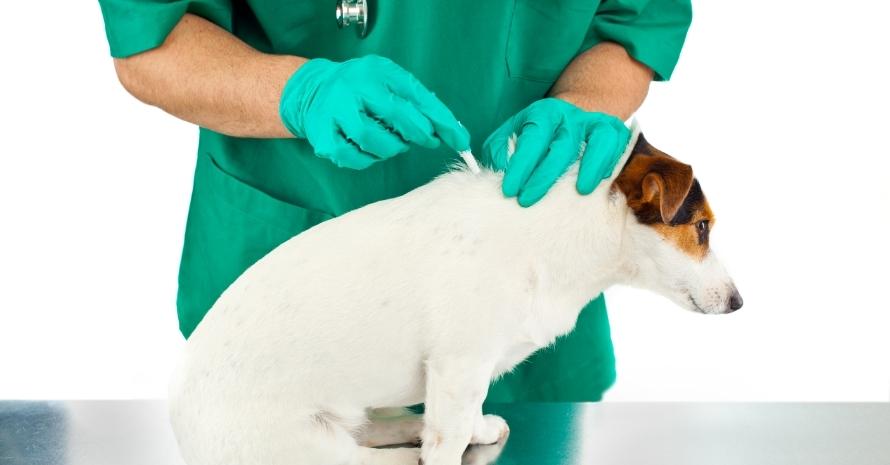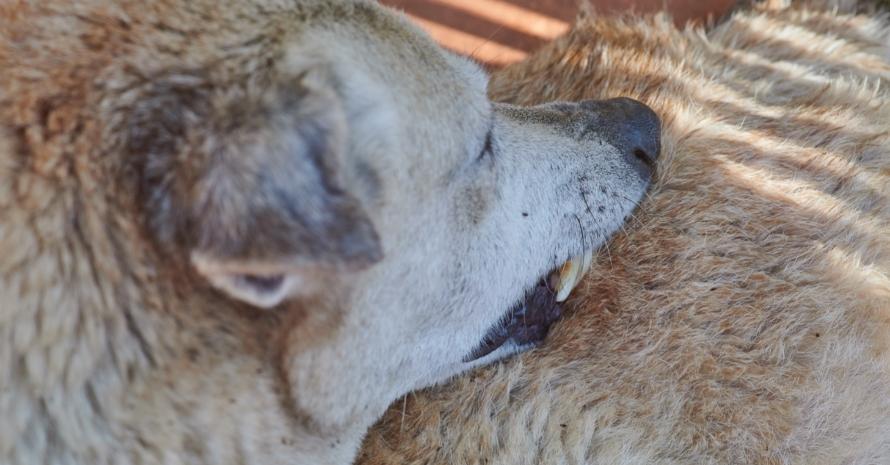People have been using lime for decades to improve the soil, and it has shown excellent repelling properties. Lime is a material made of carbonate rocks. Depending on the type of rock, there are agricultural and hydrated variations of lime. Agricultural lime is a soil conditioner made from crushed or dolomitic limestone, it is less toxic and thus widely used for treating plants. Does lime kill fleas? The short answer is yes, and in this article, I will explain its main properties and basic rules of application.
Guide on Using Lime in the Yard
- Clean the yard and remove all the debris where fleas can hide.
- Detect places with the highest concentration of fleas; pay attention to shady, wet corners.
- Pour the lime solution into the chosen areas. Repeat if necessary, but don’t overdo it: Too much lime damages plants.
- Cut your grass short to prevent fleas in the future.
Does Lime Kill Fleas?
Lime is widely used in agriculture; it is a proven remedy with a number of benefits. Lime is known for improving water penetration, the uptake of major plant nutrients on acidic soil types, and providing a source of calcium for plants.
Lime is also used for repelling insects, for example, aphids, beetles, squash bugs, and fleas. There are several types of lime, but only one of them is recommended for use in the garden.

It is agricultural or garden lime. It affects both adult fleas and eggs helping to prevent the recurrence of flea outbreaks.
Unlike saltwater that spoils the ground and makes it too dry for plants to thrive, agricultural lime affects insects directly. It kills fleas by drying out the eggs and damaging adult fleas so that they die from dehydration. This principle is similar to the way diatomaceous earth works. However, agricultural lime can damage both pests and beneficial insects.
What Kind of Lime Kills Fleas?
There are two main types of limes: agricultural and hydrated lime. The most important characteristic is their toxicity, which defines the principle of application:
Agricultural lime is gentler. It is designed for use in gardens, farms, and fields to improve the quality of the soil. It provides calcium and magnesium that boost plant growth. This type is an animal-friendly product, but I strongly recommend avoiding direct contact with the powder;

Hydrated lime is used as a component of building materials such as cement, concrete, and mortar. However, it can kill insects too. Due to its high toxicity, hydrated lime is used on outlying lands to kill insects that can harm animals. Hydrated lime for fleas is even more dangerous than agricultural, yet it is much more likely to cause burns and poisoning, which means it is not safe for animals too. This type of lime is forbidden in some areas, so you have to check the local regulations before applying it.
How to Use Lime to Kill Fleas?
Agricultural lime is the safest option between the two; it is still relatively toxic and might cause health issues both for humans and animals. Too much lime powder for fleas or too long exposition might also damage plants in the yard. Here are the steps you should take to ensure its proper application:
- The first thing to know when using lime to kill fleas is safety rules. Don’t let the product contact your bare skin. Wear waterproof gloves, don’t neglect eye protection, and protect your respiratory tracts. I also recommend wearing long pants and a long-sleeved shirt.
- Keep children and pets away from the lime application area until the product is entirely absorbed.
- Avoid spraying lime in rainy weather so that the toxins do not penetrate deeply into the soil. Applying lime under intense sunlight can burn plants.
- Don’t treat the yard with lime too often. It raises the pH level of the soil, which can make it harder for the plants to absorb water and nutrients through the roots.
You can find various other instructions on the Internet, but the first thing to read is the description for the particular product. Here is an example of a DIY recipe you can use to prepare a flea-repellent spray based on agricultural lime:
- Mix ½ cup of agricultural lime with a gallon of water.
- Add 3 tbsp. of biodegradable dish soap to thicken the remedy and prevent it from washing away during the rain.
- Wait until the remedy soaks into the soil, and don’t let your pet visit the treated area before.
Does Lime Kill Fleas in the Yard?
Lime is a caustic material, and it has been long used in agriculture to improve soil quality. Among numerous useful properties, lime is known for its capacity to repel insects, in particular, fleas. Using lime for fleas in the yard affects the insect directly and affects all the stages, from an egg to an adult flea. After they contact lime, insects die from dehydration.
FAQ About Using Lime to Kill Fleas

Lime is not a product you can find in any kitchen, so using it for the first time might confuse you. Though it is a relatively harmless product, you still need to stick to the safety rules.
How long does it take for lime to kill fleas?
Getting rid of fleas rarely takes one round. Whatever method you choose, a certain percentage of their population can survive and mate. If you decide to use lime to kill fleas, it usually takes from 6-8 weeks to 3-4 months.
Can I use lime juice to kill fleas?
No study has proven that natural remedies can kill insects; they only work as repellents. The same concerns lime: No matter how you apply it, such ingredients can’t kill fleas. Another popular question is “does lime sulphur dip kill fleas?” — the answer is “no, it doesn’t affect fleas at any stage.”
Is lime harmful to dogs?
Agricultural lime is allowed to be used around animals with some restrictions in min. Don’t let animals visit the treated area until the remedy is fully absorbed. Direct contact with the product can cause chemical burns and poisoning. Hydrated lime is more toxic and is never used around pets.
Will Lime Kill Fleas In the End?
Agricultural lime for fleas can replace insecticides and give the same results. This type is less effective than hydrated lime, but it is the safest option for plants and animals. There are some safety rules when it comes to treating a yard with lime such as covering the skin and protecting the mucus membrane. I also highly recommend that you don’t let pets attend the treated area until the solution is completely absorbed.
Have you already tried to get rid of the fleas in the yard on your own? What kind of remedy do you trust the most? Share your thoughts in the comments.
Also Read:
- Does Peroxide Kill Fleas: Guide to Remove These Pests
- Does Baking Soda Kill Fleas? People Saying VS Scientific Evidence
- Does Heat Kill Fleas: Pest Control at Home
- How to Get Rid of Cat Dandruff or Flea Eggs: Easy Control & Prevention Guide
- How to Get Rid of Fleas on Couch: Best Ideas for Everyone
References:
- The benefits of using lime to maximise soil nutrient performance (Department of Agriculture, Environmental and Rural Affairs)
https://www.daera-ni.gov.uk/news/benefits-using-lime-maximise-soil-nutrient-performance - Draft Safety Language For NLA Publication (Lime) https://www.lime.org/documents/lime_basics/fact-safety_precautions.pdf

